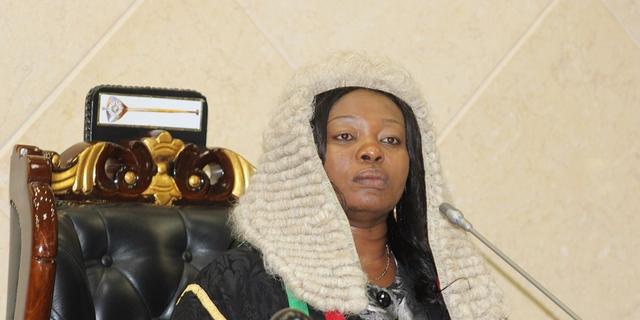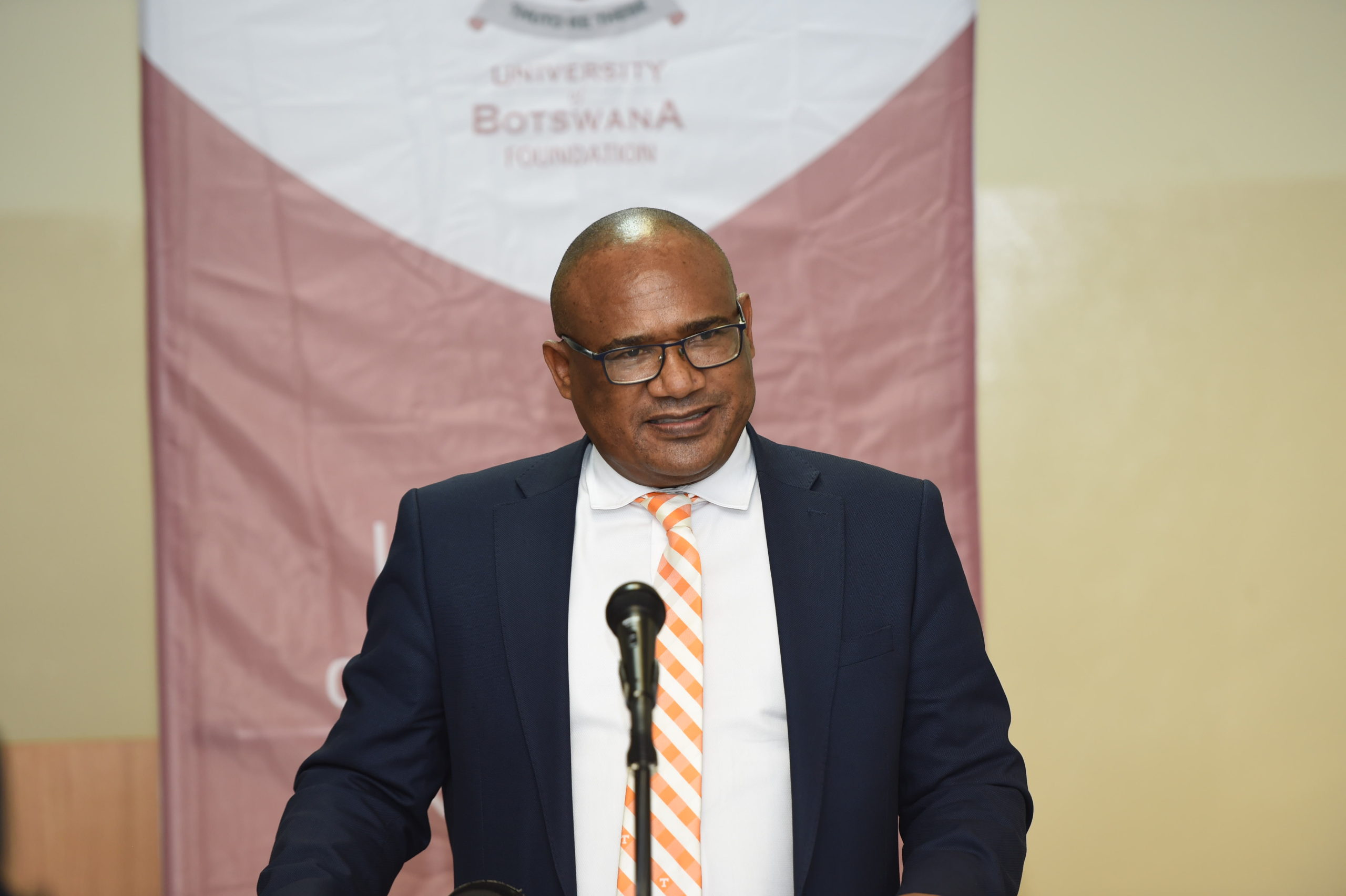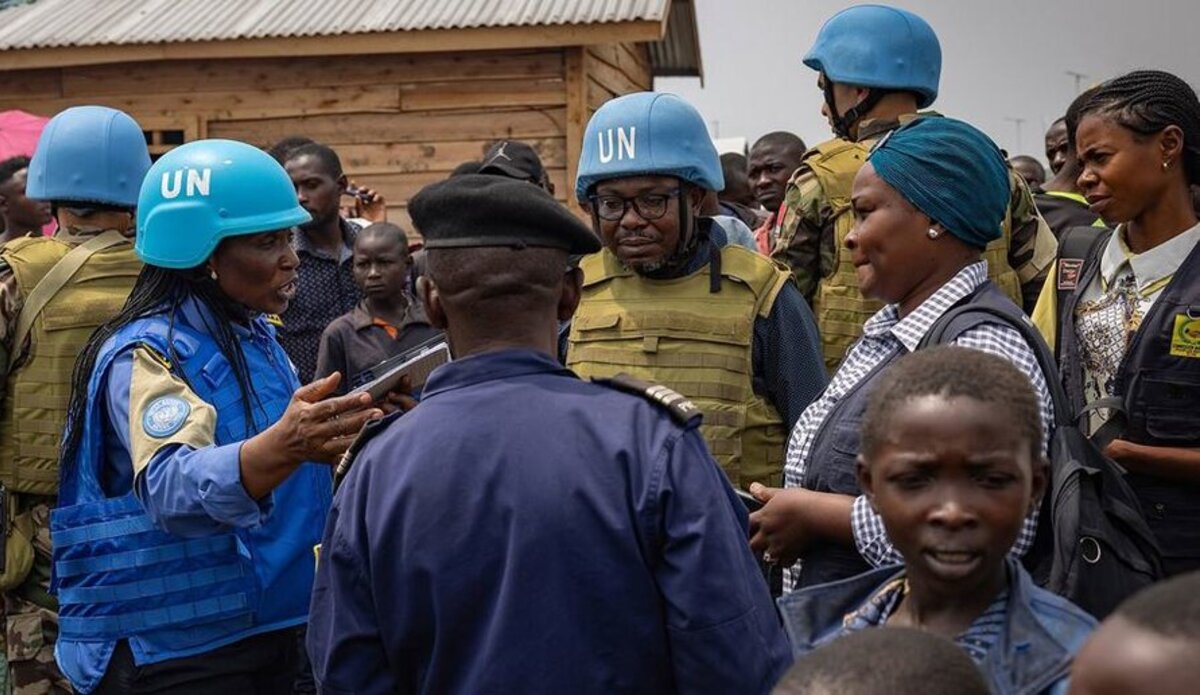
Malawi's first-ever female Speaker of the National Assembly Rt. Hon. Catherine Gotani Hara, MP and Host Speaker for the Committee Session in the 51st SADC PF Plenary Assembly Session
The Pan Afrikanist Watchman
The Committee Sessions started in earnest Tuesday with the Rt. Hon. Catherine Gotani Hara, MP and Host Speaker for the Committee Session in the 51st SADC PF Plenary Assembly Session welcoming Members of Parliament and all other delegates.
The meetings of the Standing Committee of the SADC Parliamentary Forum are being held physically in Johannesburg, South Africa from 26th April to 3rd May 2022 in preparations for the 51st Plenary Assembly Session of the Forum which Malawi is expected to host from 7th to 16th July 2022.

Rt. Hon. Catherine Gotani Hara, Malawi’s first-ever female Speaker of Parliament indicated that the meetings of the Standing Committees are a fulfilment of the Committees’ constitutional mandate as oversight organs of the SADC Parliamentary Forum.
She wished the participants the best during the deliberations and hoped that the resolutions from the meetings will contribute immensely to enhancing the spirit of regional integration and cooperation among the SADC Member States.
The SADC PF Secretariat has provided the Background and situational context in respect of the development of the SADC Model Law on Public Financial Management.
According to the Secretariat, in recent years, Public Financial Management (PFM) has been identified as a key tenet of democratic frameworks, bearing strong links with the rule of law, constitutionalism and parliamentary sovereignty.
As a result, the 46th Plenary Assembly of the SADC-PF identified the inherent deficiencies which existed in PFM regimes of SADC Member States and called for swift reform through the development of a Model Law on PFM which would stand as a guiding legislative benchmark for the inspiration of national Parliaments.
According to the evidence generated by the country rankings relating to democracy and governance indices published worldwide (the EIU and Mo Ibrahim Indices), the SADC region is grappling with issues of corruption, fraud, nepotism, cronyism, all of which share common roots with the way public finances are being managed.
The development of a PFM Model Law is a coveted ambition of the SADC-PF which remains to date unmatched around the globe: it is the first Model Law of its kind in the world.
It was thus intended that the PFM Model Law would serve as a landmark regional benchmark to consolidate the oversight powers of SADC Parliaments over various PFM processes, including the budget process, supplementary appropriation, public debt, scrutiny of public operations through the Public Accounts Committee, to cite but a few areas of concern.
In addition, the PFM Model Law is aimed at helping to consolidate the democratic drive by encouraging the mainstreaming of the Sustainable Development Goals (SDGs) into the budget process and to remain visible; that Universal Health Coverage (UHC) is progressively implemented; and that provision for SRHR and HIV/AIDS Governance is improved at every budget exercise.
Furthermore, the PFM Model Law encompasses the use of new technologies such as crypto-currencies which may have an undeniable impact on public finances in years to come.
With the advent of the SADC Model Law on PFM, it is envisioned that Southern Africa may become a powerhouse of social and economic prosperity which is equally respectful of human rights and democratic principles.
II. The Joint Session of Standing Committees
The Forum is proceeding with its statutory Committee session from the 27th of April to 4th May 2022, which constitutes a unique occasion for all Standing Committees and the Regional Women Parliamentary Caucus to reflect, consult and deliberate on the PFM Model Law, prior to its adoption at the 51st Plenary Assembly of the Forum.
Since the Model Law has been developed in a holistic fashion, it is important for all Standing Committees and the RWPC to consider its provisions from their respective thematic lenses, such that the Model Law becomes a well-balanced legislative instrument which is robustly grounded in all the key intervention areas of the Forum.
It is thus important for Standing Committees and the RWPC to hit the mark and give polishing remarks for the Model Law to crystallise and be ready for recommendation to the Plenary Assembly.
III. Areas of the PFM Model Law to be covered by each Standing Committee
The central objective of the Committee session will thus be to focus on the
need for PFM reform, with the Model Law being showcased as an enabler of parliamentary efforts for progressive PFM measures. Each Standing Committee will be earmarked to reflect and deliberate on satellite themes which are relevant to its mandate and which gravitate around the central theme of PFM, as follows:
1. The Human and Social Development and Special Programmes Committee (HSDSP)
Reflections are by the Committee centred around the mainstreaming of the Sustainable Development Goals (SDGs), UHC and SRHR through budget documents to be tabled in Parliament as provided for in the Model Law. Part of the Model Law to consider: Part 7 (In particular sections 59 to 61)
2. The Committee on Trade, Industry, Finance and Infrastructure (TIFI)
The Committee may wish to focus on Part 8 of the Model Law regarding Government borrowing since it impacts to a huge extent the level of investment made. Part 9 on Procurement and Part 10 on Public Accounts are also areas of interest to the Committee.
3. The Committee on Food, Agriculture and Natural Resources (FANR)
The Committee is to engage in reflections on the ways in which the PFM Model Law may be used to improve budget allocations to heighten FANR initiatives, including green and ecological farming, climate change adaptation, and pesticide-free cultivation, among others. The Committee may consider how to leverage tax and non-fiscal incentives through the budget process to heighten sustainable agricultural initiatives.
4. The Committee on Democratisation, Governance and Human Rights (DGHR)
The Committee may wish to brainstorm on the provisions of the Model Law relating to checks and balances, and parliamentary control, in particular Part 6. This Part focuses on the functions and powers of the Public Accounts Committee and on the type of reports that it may review apart from the report of the Auditor-General.
5. The Committee on Gender Equality, Women Advancement, Youth Development (GEWAYD)
Reflections to be centred on gender-based budgeting and gender mainstreaming into the budget exercise and on ways to achieve these two aspirations through explanatory budget statements.
Part of the Model Law to consider: Part 7 (In particular sections 60- 62)
6. The Regional Women Parliamentary Caucus (RWPC)
The RWPC may wish to consider the avenues to improve decision-making by women and to enhance women’s participation in the budget exercise. Reflections focus on Part 7 relating to the National Budget and the need to provide for the inclusive participation of women in the consultative process.
IV. Specific Objectives of the Standing Committee Session
The Specific Objectives of the Committee Session are to:
a) Take stock of the diverse PFM stakeholder consultations which took place during the period February to April 2022, including judicial officers, prosecutors, line ministries, state law officers, central banks,
to cite but a few;
b) Consider the ways in which the stakeholder consultations have shaped the provisions of the Model Law;
c) Take cognisance of relevant views and comments from stakeholder consultations for MPs to deliberate and decide upon in view of proposing amendments to the Model Law, if necessary;
d) Deliberate on provisions of the Model law from a holistic and thematic perspective, with each Committee addressing the thematic content most relevant to its mandate; and
e) Validate the provisions of the Model Law for onward adoption by the 51st Plenary Assembly.
V. Elections of new Office Bearers
By virtue of Rule 39(1) of the Rules of Procedure, the Standing Committee Sessions will also elect new Office Bearers for the positions of Chairperson and Vice-Chairperson, positions which are filled every two years, bearing in mind the principle of rotation.
Member countries which have not yet assumed these positions of responsibility will thus have the opportunity of presenting their representatives as candidates for elections.
In accordance with Rule 38(5), gender considerations must be taken into account in electing office bearers, so that to the extent practically possible, where a male MP is elected Chairperson, the Vice-Chairperson shall be female, and vice-versa, (this applies except for the RWPC where both leadership positions are occupied by female MPs).
The newly constituted leadership of Committees will thus guide the Committees of the Forum towards the 51st Plenary Assembly Session and will continue to lead the execution of Committee work plans for the next two years.









